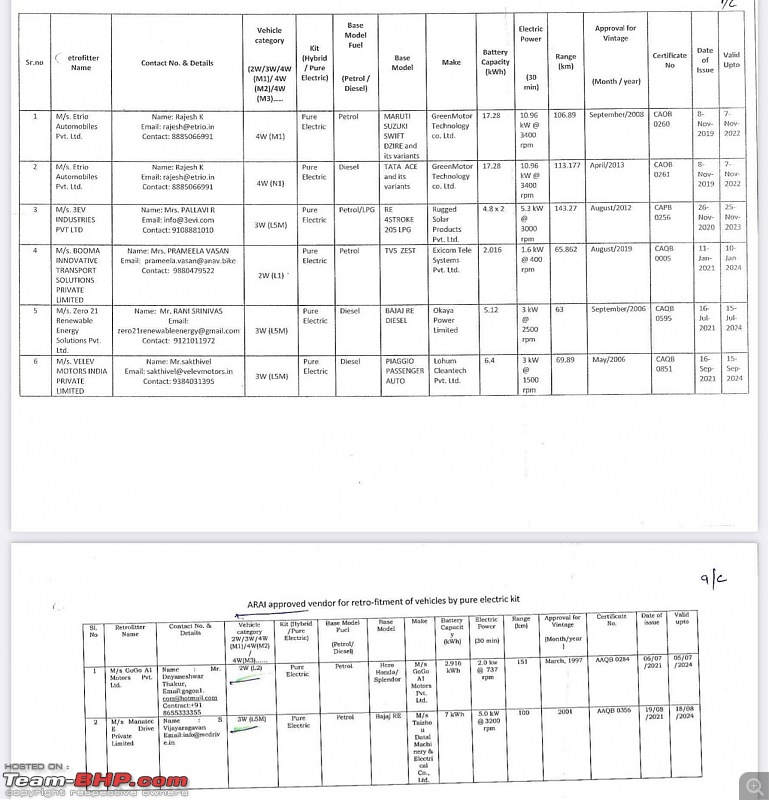Quote:
Originally Posted by batish  Sir, with due respect I completely disagree with you in this aspect. There are no advantages. Let me paint the picture for you. Majority of the pollution emitters are industries in Delhi NCR region. So scrapping old whichever BS cars are won't make things rosy. This ban was imposed years back. There has been no change in pollution levels, infact I haven't seen a single year when levels were low in winter. Leave apart low pollution levels, it hasn't been even moderate.
The ancillary advantages? lol. The government and the automotive industry are the only 2 who are getting the benefit from this diktat.
Have you read any post in this forum or anywhere where the person has got refund of his road tax paid? Till date the government is collecting tax for 15 years on diesel vehicles whereas they can only ply till 10 years. The automotive industry on the other hand got boost in sales and services.
Before I forget. This diktat applies to BS6 vehicles too. No matter how less they emit particles they can only ply for 10 years.
Sir the solution is not blanket ban. If this is how things work then ban the major sources of pollution, close the industries down. Solution is proper PUC check. If it passes then fine let the owner decide. If not, then impound it and scrap it.
It truly hurts when the vehicle is used less and you have to let it go after maintaining it and keeping it in pristine condition for all these years. We are not the government where the money in coffers will flow in somehow.
Even countries like USA allow their old vehicles to ply after emission clearances. But nowhere have I heard a blanket ban as a solution, which for the record has NOT YIELDED ANY RESULT. |
Hi, I will try to respond to all points at once, multi quote is something I haven’t mastered yet.
Agreed that majority of the pollution emitters are not automotive. So the solution to the problem cannot be single fold. But then government is trying to tackle all pollution emitters na. Trying to find solutions to the crop burning, trying to clamp down on captive diesel generating units (for eg even the company that makes syringes has been temporarily shut down), closing down the oldest of the thermal plants in the area, to name a few. So if there is effort on other polluters, then why not automotive as well?
The automotive component of the pollution is about 10% of total pollution in the NCR area. Agreed, it does not seem much, but based on an educated guess, a large portion of this automotive pollution is from BS3 vehicles, based on the emission limits of various classes of vehicles (B3,BS4,BS6) As a result, removing BS3 vehicles would actually be beneficial.
I will not comment on the road tax refund, as I have not much knowledge of the same. Government does get money out of sales but we need to remember that Automotive sector generates a lot of employment, being one of the largest sectors in India. So that is definitely a good thing.
Regarding this diktat applying to BS6 vehicles, makes sense, by 2031, the pollution norms will be that much stricter that the clean diesels of today would not make sense by then.
Regarding your point of having pristine condition BS3 vehicles plying on the roads, I completely agree that they should be allowed to continue, but we have to take into account that 1 out of maybe 100 BS3 vehicles will be in that condition (optimistic estimate IMO), rest 99 would be in not so good condition, and making exceptions for that 1% vehicles would be tough to enforce in an already complicated system of implementation of these rules.
The fact that very few vehicles have actually been scrapped shows that the government, either through lethargy or as a plan, used this law to get people to seriously think about upgrading their vehicles, rather than using force to get it done.
I completely agree with you that PUC norms needs to be tightened and used as a measure for disqualifying vehicles and deregistering them. This is an implementation issue, and I hope they are able to improve on this, not just in NCR but all over the country.
We cannot compare other countries like USA because of the much lower population (and vehicle) density vs India, in addition to much larger land mass and green cover. Just because it doesn’t work there, it wont work in India is wrong conceptually, just like blindly apeing them is wrong. India has its own experts, and need of the hour is to find India specific solutions to local problems.

 (1)
Thanks
(1)
Thanks
 (9)
Thanks
(9)
Thanks
 (4)
Thanks
(4)
Thanks

 (3)
Thanks
(3)
Thanks
 (2)
Thanks
(2)
Thanks
 (11)
Thanks
(11)
Thanks
 (2)
Thanks
(2)
Thanks

 (3)
Thanks
(3)
Thanks
 (1)
Thanks
(1)
Thanks

 (1)
Thanks
(1)
Thanks
 (1)
Thanks
(1)
Thanks







 ), but:
), but: